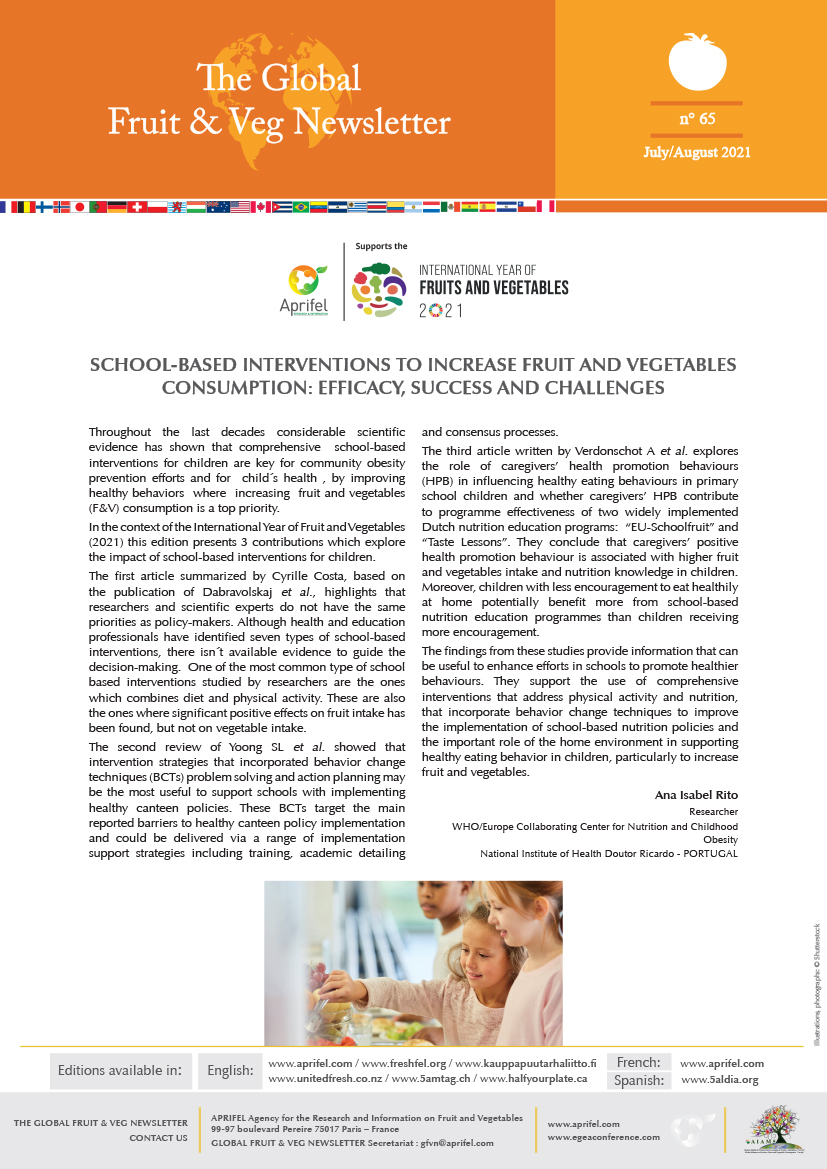School-based interventions to increase fruit and vegetables consumption: efficacy, success and challenges
Editorial
Throughout the last decades considerable scientific evidence has shown that comprehensive school-based interventions for children are key for community obesity prevention efforts and for child´s health, by improving healthy behaviors where increasing fruit and vegetables (F&V) consumption is a top priority. In the context of the International Year of Fruit and Vegetables (2021), this edition presents 3 contributions which explore the impact of school-based interventions for children.
- The first article summarized by Cyrille Costa, based on the publication of Dabravolskaj et al., highlights that researchers and scientific experts do not have the same priorities as policy-makers. Although health and education professionals have identified seven types of school-based interventions, there isn´t available evidence to guide the decision-making. One of the most common type of school-based interventions studied by researchers are the ones which combines diet and physical activity. These are also the ones where significant positive effects on fruit intake has been found, but not on vegetable intake.
- The second review of Yoong SL et al. showed that intervention strategies that incorporated behavior change techniques (BCTs) problem solving and action planning may be the most useful to support schools with implementing healthy canteen policies. These BCTs target the main reported barriers to healthy canteen policy implementation and could be delivered via a range of implementation support strategies including training, academic detailing and consensus processes.
- The third article written by Verdonschot A et al. explores the role of caregivers’ health promotion behaviours (HPB) in influencing healthy eating behaviours in primary school children and whether caregivers’ HPB contribute to programme effectiveness of two widely implemented Dutch nutrition education programs: “EU-Schoolfruit” and “Taste Lessons”. They conclude that caregivers’ positive health promotion behaviour is associated with higher fruit and vegetables intake and nutrition knowledge in children. Moreover, children with less encouragement to eat healthily at home potentially benefit more from school-based nutrition education programmes than children receiving more encouragement.
The findings from these studies provide information that can be useful to enhance efforts in schools to promote healthier behaviours. They support the use of comprehensive interventions that address physical activity and nutrition, that incorporate behavior change techniques to improve the implementation of school-based nutrition policies and the important role of the home environment in supporting healthy eating behavior in children, particularly to increase fruit and vegetables.
Ana RitoResearcher | WHO/Europe Collaborating Center for Nutrition and Childhood Obesity | National Institute of Health Doutor Ricardo - PORTUGAL
